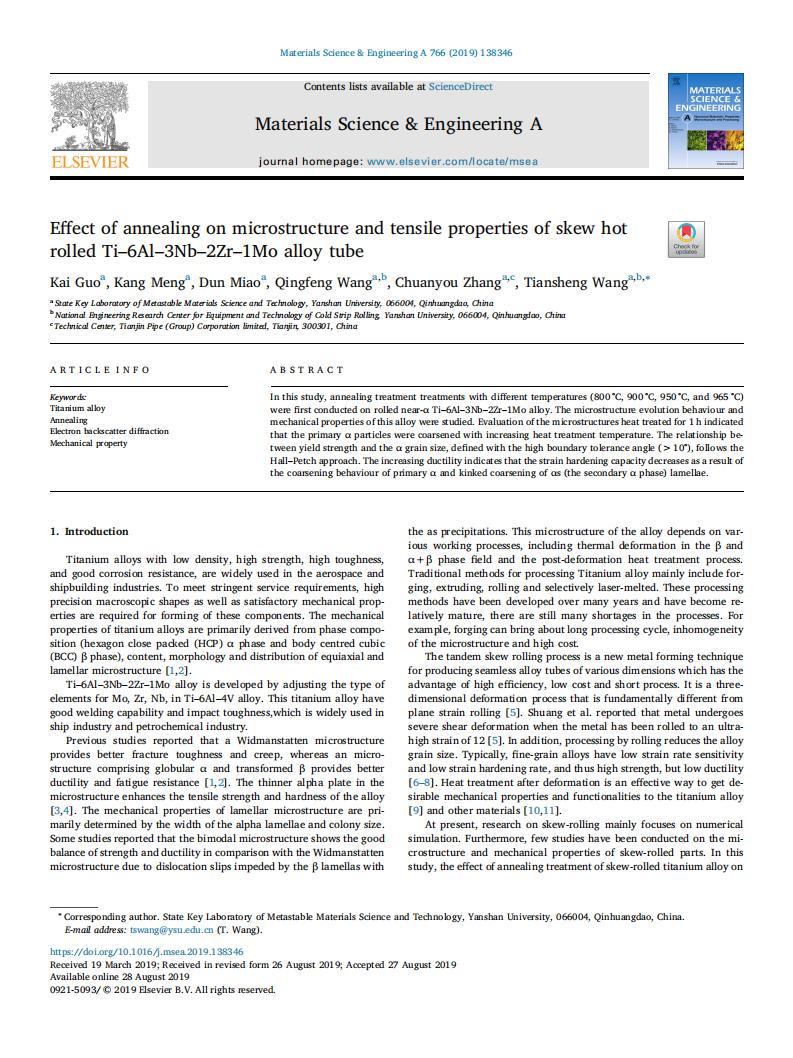In this study, annealing treatment treatments with different temperatures (800 °C, 900 °C, 950 °C, and 965 °C) were first conducted on rolled near-α Ti–6Al–3Nb–2Zr–1Mo alloy. The microstructure evolution behaviour and mechanical properties of this alloy were studied. Evaluation of the microstructures heat treated for 1 h indicated that the primary α particles were coarsened with increasing heat treatment temperature. The relationship between yield strength and the α grain size, defined with the high boundary tolerance angle (>10°), follows the Hall–Petch approach. The increasing ductility indicates that the strain hardening capacity decreases as a result of the coarsening behaviour of primary α and kinked coarsening of αs (the secondary α phase) lamellae.
